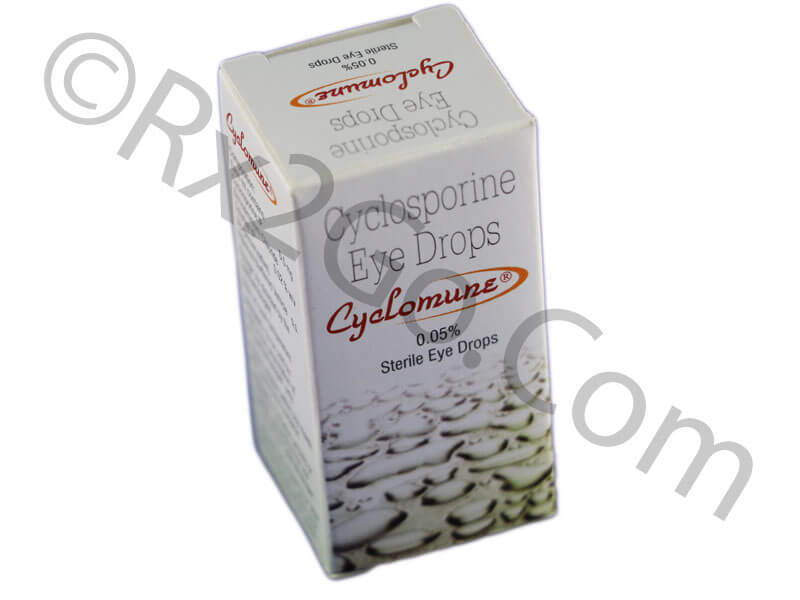What Condition Does Cyclosporine Treat and Its Price?

Cyclosporine belongs to the class of medications known as immunosuppressants. This is available in 25mg and 100mg strengths for oral use. The Food and Drug Administration (FDA) has already approved this medication.
What condition does Cyclosporine treat?
Cyclosporine is a prescription medicine used to prevent organ rejection in people who have received a liver, kidney, and heart transplant. This medication may also be used to treat severe cases of rheumatoid arthritis and plaque psoriasis. This is usually taken along with other medications to allow your new organ to function normally.
How does Cyclosporine work?
Cyclosporine decreases the activity of B and T-lymphocytes. These are white blood cells that are accountable for triggering and regulating immune responses. The usual role of these white blood cells is to provide defense against infection and foreign cells. This medicine stops the T-lymphocytes from creating substances called lymphokines. Lymphokines have various roles, including activating and attracting other immune cells. It also stimulates the creation of antibodies by B-lymphocytes. By discontinuing the T-cells from making lymphokines, Cyclosporine stops certain immune responses from happening.
If you have had an organ transplant, the cells of the donor will not be identical to the cells in your body. Consequently, your immune system will identify that the new cells are unlike and try to reject the transplanted tissue. This medication prevents this by destroying the activity of the cells in your immune system that may usually attack the transplanted tissue.
In psoriasis, it is thought that T-cells exaggerate to a stimulus in these conditions which causes the inflammation and scaling of the skin. Cyclosporine can be used in severely disabling and resilient forms of psoriasis to suppress the action of the T-cells and thus improve the scaling of the skin.
What is the dosage of Cyclosporine?
The dosage of this medicine your doctor prescribes will depend on several factors. These include:
- Your age
- The type and severity of the condition you’re using the medicine to treat
- Other medical conditions you may have
Usually, your doctor will begin you on a low dose and adjust it overtime to reach the dose that is suitable for you. Your doctor will eventually prescribe the smallest dosage that provides the desired effect.
Cyclosporine is usually taken twice a day. It is to be taken by mouth and at the same time each day. You may take each dose with or without food. You should choose one or the other and take every dose that way. If you take it with food, eat the same amount and type of food each time you take it. Swallow the medicine as a whole do not chew or crush it. Follow the dosing schedule very carefully. Do not double the prescribed dosage to avoid some complications. Take this medication at the same time each day. If you missed a dose, call your doctor for instructions. Avoid taking two doses to make up for the missed one.
What are the precautions in using Cyclosporine?
Use Cyclosporine with caution in:
- Children and elderly people
- People with decreased kidney and liver function
- People with a high level of uric acid in their blood
- Dermatitis patients with skin infections and psoriasis patients with malignant or pre-malignant skin conditions
This medicine should not be used in:
- Children under 16 years of age except for preventing and treating transplant rejection
- Nephrotic syndrome patients with uncontrolled infections, uncontrolled high blood pressure, or any kind of malignancy
- Dermatitis and psoriasis patients with uncontrolled high blood pressure, abnormal kidney function, or uncontrolled infections
- Rheumatoid arthritis patients with uncontrolled infections, abnormal kidney function, or uncontrolled high blood pressure
- Uveitis patients with uncontrolled high blood pressure, uncontrolled infections, or abnormal kidney function
Pregnancy and breastfeeding:
- This medication not recommended for use in pregnancy unless considered needed by your doctor. Seek more medical advice from your doctor.
- This medication passes into breast milk. It might be harmful to a nursing infant. Those women who need to take Cyclosporine should not breastfeed. Ask for more medical advice from your doctor.
Cost of Cyclosporine vs. Neoral
The generic Cyclosporine is an inexpensive medication that only costs:
- $0.73 per unit of 25 mg capsule
- $22 for 30 caps of 25 mg capsule
- $2.89 per unit of 100 mg capsule
- $86.90 for 30 caps of 100 mg capsule
The brand name Neoral costs a lot more expensive which is:
- $2.67 per unit of 25 mg capsule
- $80.06 for 30 caps of 25 mg capsule
- $9.72 per unit of 100 mg capsule
- $291.47 for 30 caps of 100 mg capsule



